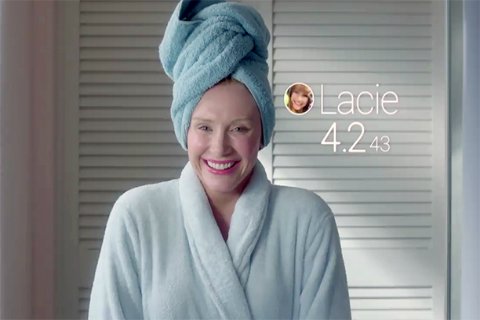Fans of the wonderful and wild TV series Black Mirror would be horrified to see the terrifying episode turning into a reality.
If you don’t know it already, Black Mirror is a speculative anthology TV series which considers the not-so-clear relationship between humans and technology.
In one of its episodes, which was given the name ‘’Nosedive’’, such a version of America was shown where every tiny interaction between human beings was rated on an app. The ratings were so crucial that they could make or break the socio-economic status of the receiver.
Terrifyingly, the app system worked whenever you saw someone. All you had to do was to just enter a human’s name into an app, and their rating – or the way their fellow beings rated their interactions – would appear in front of you.
In the particular episode, we meet a young woman, named Lacie, who wants to climb the social ladder at the expense of others and uses the rating system for the same purpose. She succeeds in doing so but at the end of the episode, several mishaps from her side lead to a reduction in her ratings, after which she succumbs to panic attacks.
All in all, this episode was a satirical attack on how human beings perceive social media, and how much we are influenced by it.
While the episode was quite terrifying, we had the solace at that time that it was mere fiction. No more. For the digital nightmare is about to become a reality for the Chinese in their country.
According to British daily Telegraph, the Chinese Government is building a social credit rating system with which it could test the trustworthiness of its citizens. The system, which would be fully implemented by the year 2020, would allow Chinese citizens to award one another ‘scores’.
The lowest score on the scale, 350, would be awarded to persons considered the least trustworthy, with the highest, 950, awarded to the most truthful. And if a person wants to see their ratings go up, they’d have to do good deeds like donating blood, recycling, or, sending positive messages about China on its social media.
Conversely, if citizens do ‘’bad deeds’’, such as canceling a reservation, leaving a dishonest review, or worryingly, if their friend list on social media contains ‘’bad’’ persons, their numbers would go down.
Apart from ranking individuals based on their trustworthiness, the rating system would award those deemed the most trustworthy by providing them with cheaper public transport, short waiting time in hospitals, and free gym memberships.
Worryingly, it would also punish those with bad ratings with travel restrictions, slow internet speeds, and restricted access to certain areas.
As fans of Black Mirror would tell, the rating system ended with drastic consequences for Lacie. We hope the Chinese Government would see the episode before enacting the ranking system.
